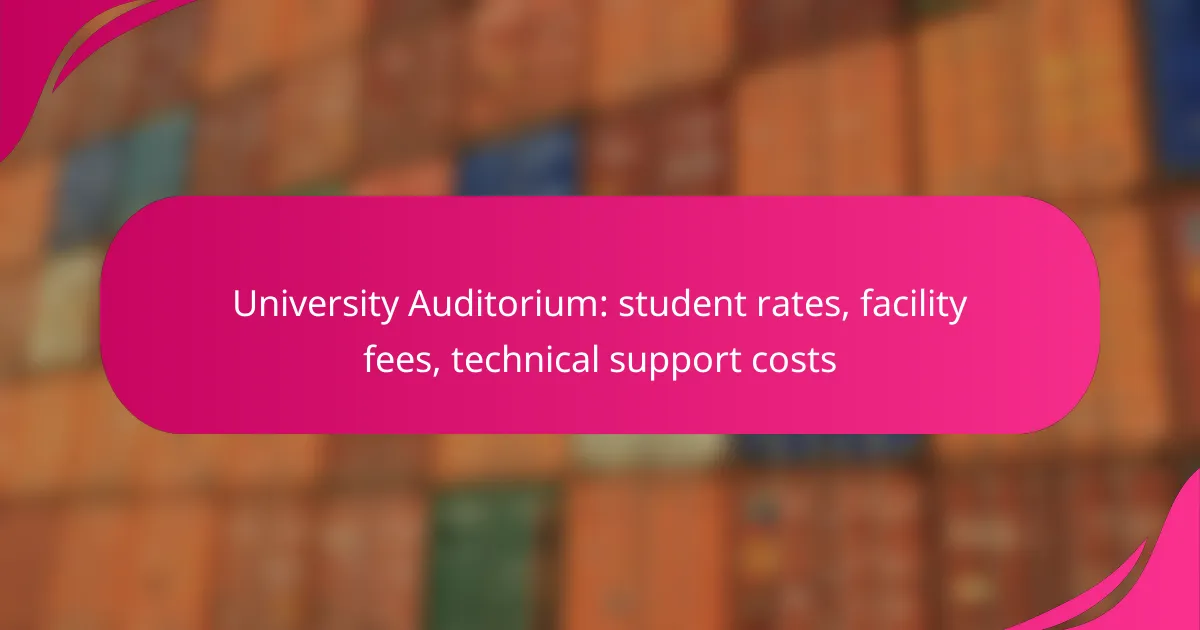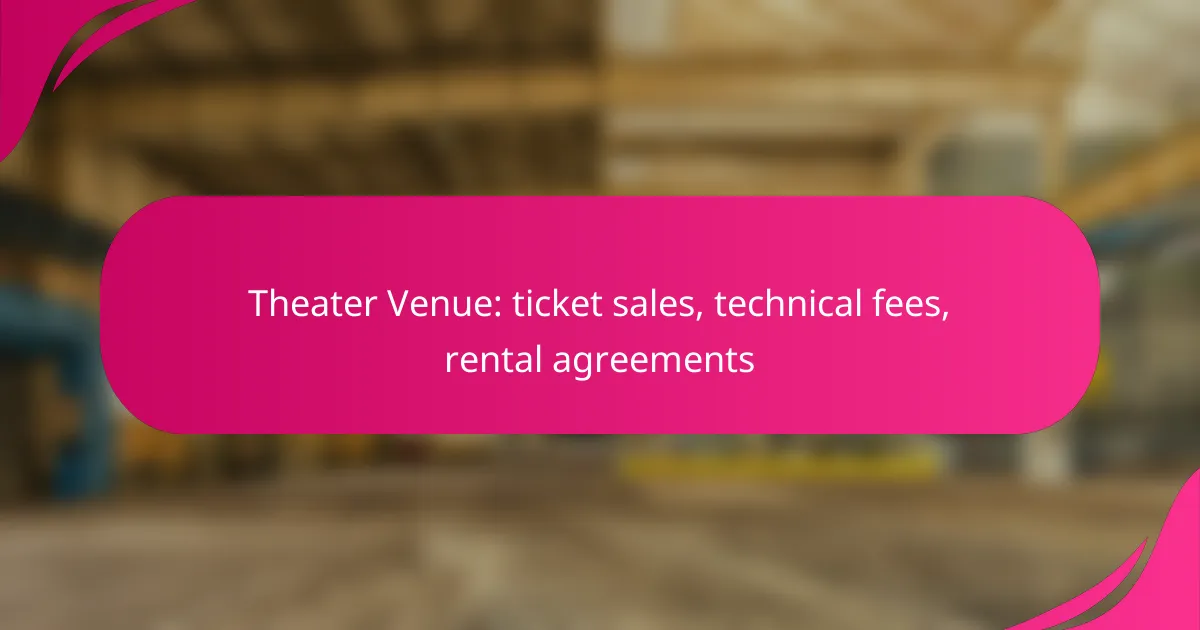When planning an event in a university auditorium, students can benefit from discounted rates that vary by institution and event type. Facility fees depend on factors such as space size and rental duration, while technical support costs cover equipment rentals and technician services. Being aware of these expenses is essential for effective budgeting and event success.
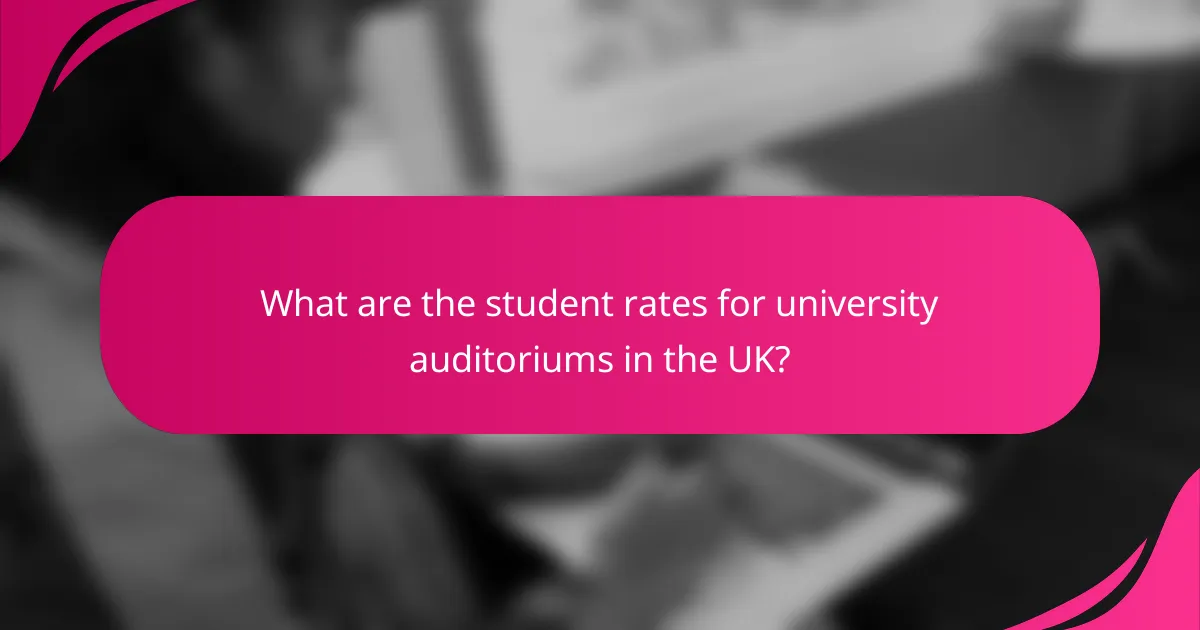
What are the student rates for university auditoriums in the UK?
Student rates for university auditoriums in the UK typically offer significant discounts compared to standard pricing. These rates vary by institution and often depend on the type of event being hosted, whether it’s a student organization gathering or a university-sponsored event.
Discounted rates for student organizations
Many universities provide discounted rates specifically for student organizations, making it more affordable for them to host events. These rates can range from 20% to 50% off the standard fees, depending on the auditorium’s capacity and the event’s nature.
To qualify for these discounts, student organizations usually need to provide proof of their status, such as a student union registration or an official event proposal. It’s advisable to book well in advance to secure the best rates and availability.
Standard rates for university events
Standard rates for university events are typically set by the institution and can vary widely. These rates may include additional costs for technical support, equipment rental, and facility usage, which can add up to several hundred pounds for larger venues.
When planning an event, it’s essential to inquire about all potential fees upfront. Some universities may offer package deals that include technical support and equipment, which can be more cost-effective than paying for each service separately.
Membership options for frequent users
For students or organizations that frequently use university auditoriums, membership options may be available. These memberships often provide reduced rates, priority booking, and access to exclusive facilities or services.
Membership fees can vary, but they typically offer savings that make them worthwhile for regular users. It’s beneficial to compare the cost of membership against the expected usage to determine if it will be financially advantageous.
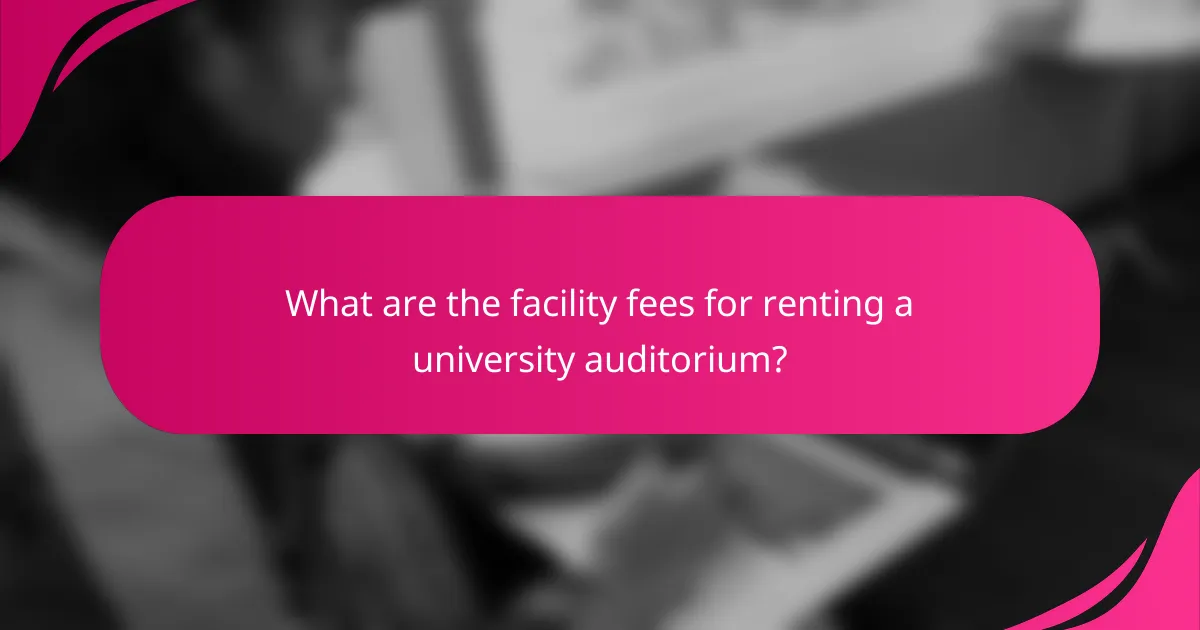
What are the facility fees for renting a university auditorium?
Facility fees for renting a university auditorium vary based on the size of the space, the duration of the rental, and any additional services required. Typically, these fees can range from a few hundred to several thousand pounds, depending on the institution and specific auditorium features.
Base rental fees for different auditorium sizes
Base rental fees are generally categorized by auditorium size, with smaller venues costing less than larger ones. For instance, a small auditorium may charge around £200-£500 for a half-day rental, while a medium-sized auditorium could range from £500-£1,200. Larger auditoriums often have fees starting at £1,200 and can go up to £3,000 or more for full-day rentals.
When considering rental options, it’s essential to check the specific university’s pricing structure, as some institutions may offer discounts for student organizations or non-profit events.
Additional charges for amenities and services
In addition to base rental fees, universities may impose extra charges for amenities and services such as audio-visual equipment, catering, and technical support. For example, renting sound equipment might add £100-£300 to your total cost, while hiring a technician for support could range from £50-£150 per hour.
It’s advisable to clarify what is included in the base rental fee and to inquire about any potential additional costs upfront to avoid unexpected expenses.
Comparison of fees across major UK universities
Facility fees for university auditoriums can differ significantly across major UK universities. For example, the University of London may charge around £1,000 for a large auditorium, while the University of Manchester might offer similar spaces for £800. In contrast, smaller institutions may have lower fees, often starting at £300 for comparable facilities.
When planning an event, comparing fees and services offered by different universities can help you find the best option that fits your budget and requirements. Always consider the total cost, including any additional charges, to make an informed decision.
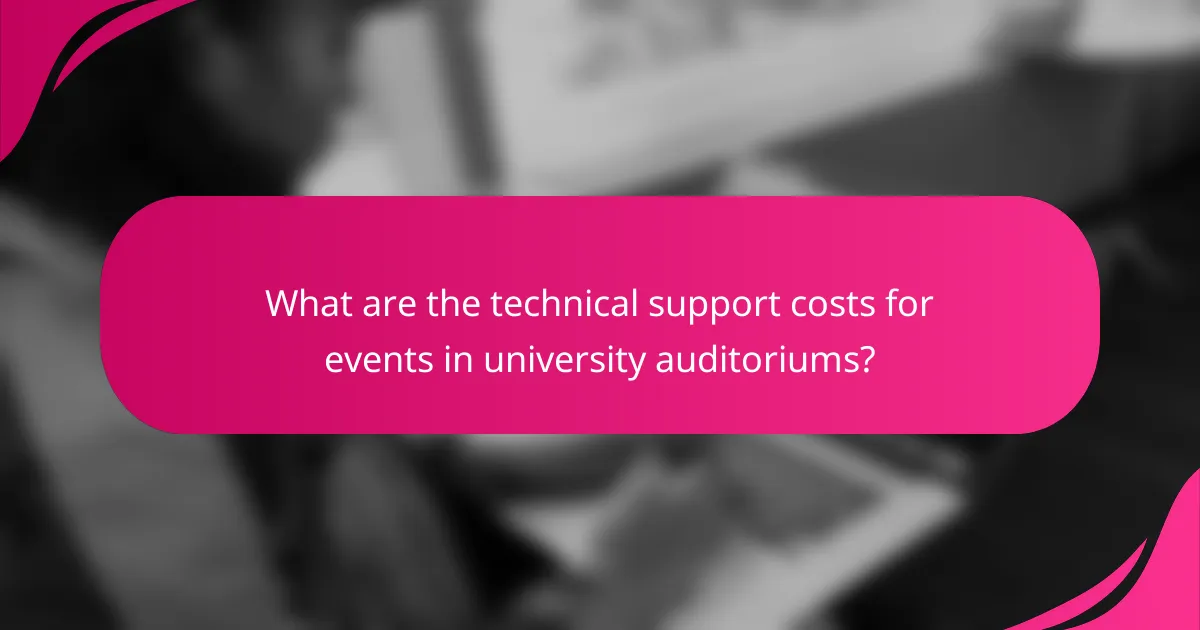
What are the technical support costs for events in university auditoriums?
Technical support costs for events in university auditoriums typically include fees for standard packages, specialized equipment rentals, and on-site technician services. Understanding these costs is crucial for budgeting and ensuring a successful event.
Standard technical support package pricing
Standard technical support packages usually cover basic audio-visual equipment, setup, and on-site assistance. Prices can range from a few hundred to over a thousand USD, depending on the auditorium’s facilities and the event’s requirements.
When planning your event, consider the specific needs for sound, lighting, and projection. It’s often beneficial to discuss these needs with the auditorium’s management to select the most appropriate package.
Costs for specialized equipment rentals
Specialized equipment rentals, such as advanced sound systems or high-definition projectors, can significantly increase your overall costs. Rental fees for such equipment may range from low hundreds to several thousand USD, depending on the technology and duration of use.
Always check the availability of specialized equipment well in advance and inquire about any additional fees for setup or technical support. This helps avoid unexpected expenses on the day of the event.
On-site technician fees during events
On-site technician fees are charged for the presence of technical staff during your event, ensuring that all equipment operates smoothly. These fees can vary widely, typically ranging from around 50 to 150 USD per hour, depending on the technician’s expertise and the complexity of the event.
To manage costs effectively, consider the duration of your event and the level of technical support required. Booking technicians for only essential hours can help keep expenses in check while still ensuring a successful experience.

What factors influence auditorium rental costs in the UK?
Auditorium rental costs in the UK are influenced by various factors including the time of year, demand fluctuations, the duration of the event, and specific setup requirements. Understanding these elements can help you budget effectively and choose the best time for your event.
Time of year and demand fluctuations
The time of year significantly impacts auditorium rental costs due to varying demand. Peak seasons, such as the summer months and holiday periods, often see higher prices due to increased bookings.
Conversely, off-peak times can offer lower rates. For example, January and February might provide more affordable options as fewer events are scheduled. Always check local calendars for events that could affect availability and pricing.
Duration of the event and setup requirements
The duration of your event directly affects the rental fee. Most venues charge on an hourly basis, with longer events leading to higher overall costs. Additionally, setup and breakdown times may incur extra charges, so plan accordingly.
Consider the complexity of your setup. A simple arrangement may require less time and fewer resources, while a more elaborate configuration could increase costs. Always clarify with the venue about any additional fees for technical support or equipment needed for your event.

How to choose the right university auditorium for your event?
Selecting the right university auditorium involves considering factors like capacity, layout, and accessibility. These elements influence the overall experience for attendees and the success of your event.
Capacity and layout considerations
When choosing an auditorium, first assess the expected number of attendees. Most university auditoriums can accommodate anywhere from a few dozen to several hundred people. Ensure the seating arrangement aligns with your event’s format, whether it’s a lecture, workshop, or performance.
Consider the layout options available, such as theater-style, classroom, or banquet setups. Each configuration serves different purposes; for instance, theater-style maximizes seating, while classroom setups facilitate interaction. Make sure to check if the auditorium can be reconfigured to suit your needs.
Location accessibility for attendees
Accessibility is crucial for ensuring all attendees can reach the auditorium easily. Look for auditoriums that are centrally located on campus, ideally near public transportation and parking facilities. This can significantly enhance attendance and participation.
Additionally, verify that the venue complies with accessibility standards, such as wheelchair access and appropriate facilities for individuals with disabilities. This consideration not only meets legal requirements but also fosters an inclusive environment for all participants.

What are the emerging trends in university auditorium usage?
University auditoriums are increasingly being utilized for diverse events, reflecting a shift towards more flexible and technology-driven environments. Key trends include the rise of hybrid events, enhanced technical support, and a focus on cost-effective solutions for students and organizations.
Increased demand for hybrid event setups
Hybrid event setups combine in-person and virtual participation, catering to a broader audience. This trend has surged as universities seek to accommodate diverse needs while maximizing attendance and engagement.
To effectively implement hybrid setups, universities should invest in reliable audio-visual equipment and robust internet connectivity. Facilities should be equipped with high-quality cameras and microphones to ensure seamless interaction between in-person and online participants.
When planning hybrid events, consider the layout of the auditorium to facilitate both audiences. Clear signage and dedicated technical support can enhance the experience for all attendees, ensuring a smooth operation.
